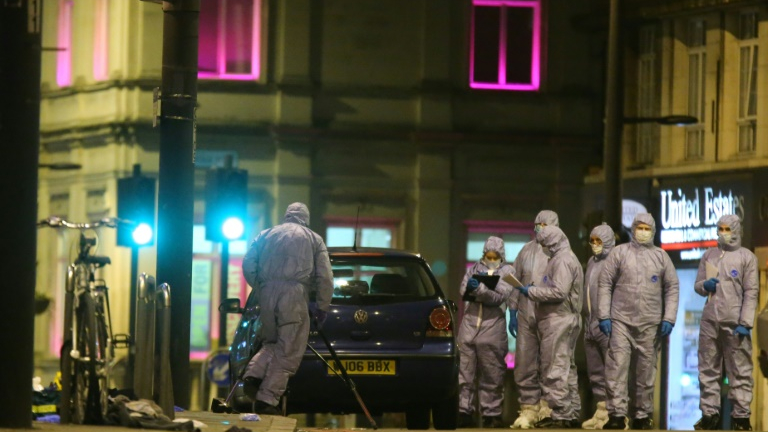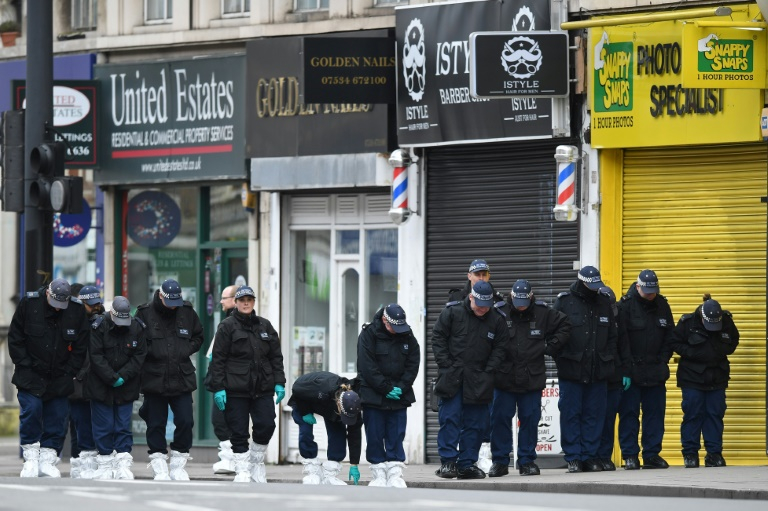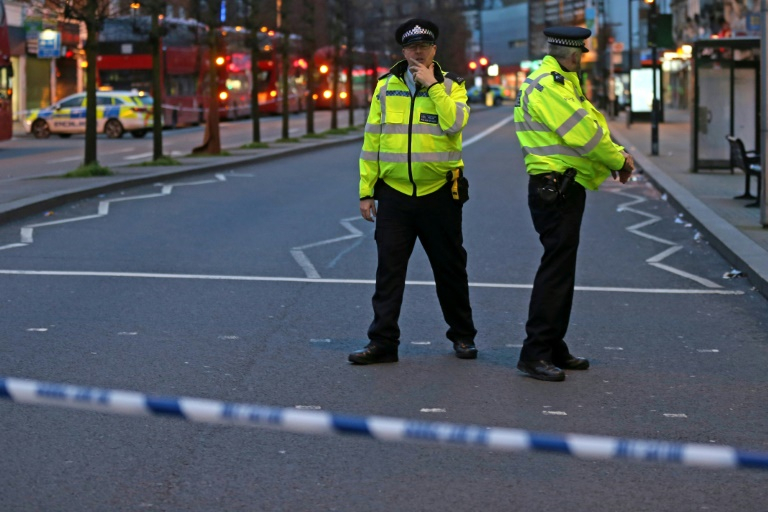
Police forensic officers work after a man was shot dead by police on Streatham High Road in south London, February 2, 2020. /AFP Photo
Police forensic officers work after a man was shot dead by police on Streatham High Road in south London, February 2, 2020. /AFP Photo
Britain on Monday promised an urgent overhaul of the law regarding convicted terrorists after police shot dead an extremist on early release from prison who stabbed two people in an attack claimed by the Islamic State group.
Justice Secretary Robert Buckland promised to introduce "emergency legislation" to end the current arrangement whereby terrorist offenders are released automatically after they have served half of their sentence.
Any early release would be subject to a risk assessment from the Parole Board, he said, adding the new measures would apply to serving prisoners.
"The earliest point at which the offenders will now be considered for release will be once they have served two-thirds of their sentence," he told MPs.
Buckland was speaking after Sudesh Amman, who was wearing a fake suicide vest, was shot dead after knifing two people on a busy street in Streatham, south London, on Sunday.
Amman was freed last week from prison after serving part of his sentence for 16 Islamist-related terror offences-namely the possession and distribution of terrorist documents, Buckland said.
The attack came just over two months after a similar incident when armed police shot dead a convicted terrorist on early release near London Bridge in the heart of the city.

Police officers conduct a search after a man was shot dead by police on Streatham High Road in south London, February 2, 2020. /AFP Photo
Police officers conduct a search after a man was shot dead by police on Streatham High Road in south London, February 2, 2020. /AFP Photo
PM pledges change
Prime Minister Boris Johnson questioned why Amman had been released automatically with no involvement from the Parole Board and raised concerns about the effectiveness of de-radicalization programs in and out of jail.
Previous measures announced after the London Bridge attack included tougher sentences of at least 14 years for the most serious terrorism offences, and more funding for counter-terrorism operations.
Amman, who was jailed for three years and four months in December 2018, had been staying in a hostel for newly released prisoners in Streatham since his release. Police said he was under surveillance by plain-clothes officers, who were following him on foot.
Amman stole a knife from a cheap goods store and attacked a woman and a man further up the high road before being gunned down in an episode police said lasted for just 60 seconds.

Police cordons remained in place at the scene in Streatham High Road in south London, February 2, 2020. /AFP Photo
Police cordons remained in place at the scene in Streatham High Road in south London, February 2, 2020. /AFP Photo
Eyewitness video footage showed him writhing on the pavement outside a pharmacy as plain-clothes armed police officers pointed hand-held weapons at him and urged passers-by to get to safety.
Amman had a dark vest with silver canisters strapped to his body.
Of the two people stabbed, police said a man in his 40s had been treated and was in a "serious but stable" condition. A woman in her 50s was discharged. A third victim, a woman in her 20s, was treated for minor injuries thought to have been caused by broken glass following the shooting.
Counter-terror officers were conducting searches at the hostel and a home in Bishop's Stortford, north of the capital near London Stansted Airport.
London Mayor Sadiq Khan said there were "roughly" more than 70 people in London who have been convicted of a terrorist offence, served time in prison and have been released.
(With input from AFP)